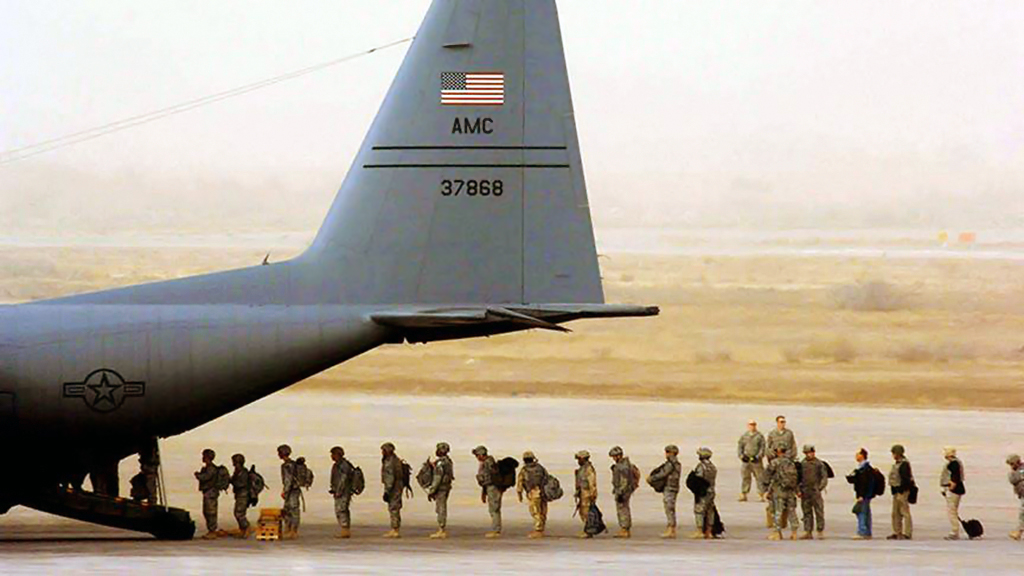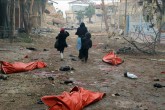Western governments have yet to recover from U.S. President Donald Trump’s decision to withdraw from Syria. American journalists are busy claiming that Daesh will make a comeback and that Turkey will massacre Syrian Kurds. Their European colleagues are no different. Others accuse Trump of capitulating to President Recep Tayyip Erdoğan.
French President Emmanuel Macron did not hide his frustration with Washington’s decision to pull out either. “An ally should be dependable,” a defiant Macron said. “I call on everyone… not to forget what we owe [to the Syrian Democratic Forces (SDF), which is dominated by the People’s Protection Units (YPG), the PKK’s Syrian affiliate].”
Although France pledged to maintain a military presence in northern Syria, its support to the SDF doesn’t really amount to anything substantial. Paris will come to terms with Trump’s decision when it realizes that the United States won’t hurt its relationship with Turkey.
To be clear, Western concerns over the slowdown of the counter-Daesh campaign are severely exaggerated. After all, Washington and Ankara are committed to cooperating more closely against the Daesh threat. Erdoğan and Trump stressed Turkey’s commitment to counterterrorism efforts in their recent statements. Sooner or later, the French government will come around and work with Turkey.
To assess the emerging situation in Syria, Ankara needs a comprehensive road map. Here’s what needs to be done:
Turkey and the Trump administration must actively coordinate their efforts to plan the withdrawal of U.S. troops from Syria. Trump’s pledge to leave Syria slowly and in coordination with Turkey was a good sign. Still, both sides must be vigilant to ensure that U.S. Central Command (CENTCOM) won’t derail the process.
There must be a joint coordinated effort to fight Daesh for the time being. Turkey and the U.S. must take into consideration European concerns over the resurgence of Daesh terrorism, recalling that the YPG threatens to release Daesh terrorists from their custody.
Turkey must underline that it will conduct military operations in Manbij and east of the Euphrates river without causing civilian casualties – as it did during the Euphrates Shield and Olive Branch operations.
The scope and timing must reflect the capabilities of the Turkish military and the Free Syrian Army (FSA). Military planners must not stretch our resources too thin and must consider potential terror attacks by Daesh and the YPG.
Although the YPG itself is beyond saving, it may be possible to transform the Syrian Democratic Forces (SDF) after the YPG militants are dismissed. Local Arab tribes and non-YPG Kurdish fighters could make valuable contributions to counterterrorism operations.
Turkey and the U.S. must find ways to prevent the Bashar Assad regime from protecting YPG militants on the ground.
It is important to stress that the YPG’s ethnic cleansing campaign causes illegal immigration and add that Europe’s love affair with the group doesn’t contribute to a lasting solution for the Syrian crisis.
Western nations, including the United States, must become part of the political transition process through Turkey. The refugee crisis alone requires the European Union to play some role in diplomatic proceedings. That approach would stress Turkey’s role as a key player that works simultaneously with the West, Russia and Iran.
Turkey must take the necessary steps to use its close cooperation with the Trump administration in Syria to take bilateral relations to the next level.
In diplomatic talks with Russia and Iran, Turkey must make the case that the eradication of YPG fighters and the return of refugees are crucial to the creation of a new Syria. Turkey will play a significant role in the reconstruction of the war-torn country.
[Daily Sabah, 25 December 2018]
In this article
- Opinion
- CENTCOM
- Counterterrorism
- DAESH
- Daily Sabah
- Donald Trump
- East of the Euphrates
- Emmanuel Macron
- Europe
- European Union (EU)
- Fight against DAESH
- France
- Free Syrian Army (FSA)
- French President
- Islamic Republic of Iran
- Kurdistan Workers' Party Terrorist Organization (PKK)
- Middle East
- Migration
- NATO
- NATO Ally
- Operation Euphrates Shield
- Peace Corridor
- People's Protection Units (YPG)
- PKK - YPG - SDF - PYD - YPJ - SDG - HBDH - HPG - KCK - PJAK - TAK - YBŞ
- Recep Tayyip Erdoğan
- Russia
- Safe Zone
- Syria
- Syrian Civil War
- Syrian Conflict
- Syrian Crisis
- Syrian Democratic Forces (SDF)
- Syrian National Army (SNA)
- Syrian National Coalition
- Syrian Opposition
- Syrian Refugees
- Terror Attack
- Terrorism
- Trump Administration
- Trump’s Syria Withdrawal
- Turkish Foreign Policy
- Turkish-American Relations
- Türkiye-US Relations
- Türkiye-US Security Relations
- Türkiye's Foreign Policy
- Türkiye's Operation Peace Spring
- Türkiye’s Operation Olive Branch
- United States (US)
- US President
- US Withdrawal from Syria
- US-PKK/PYD/YPG/SDF Relations
- US-Terror Relations
- Vladimir Putin
- Western World



